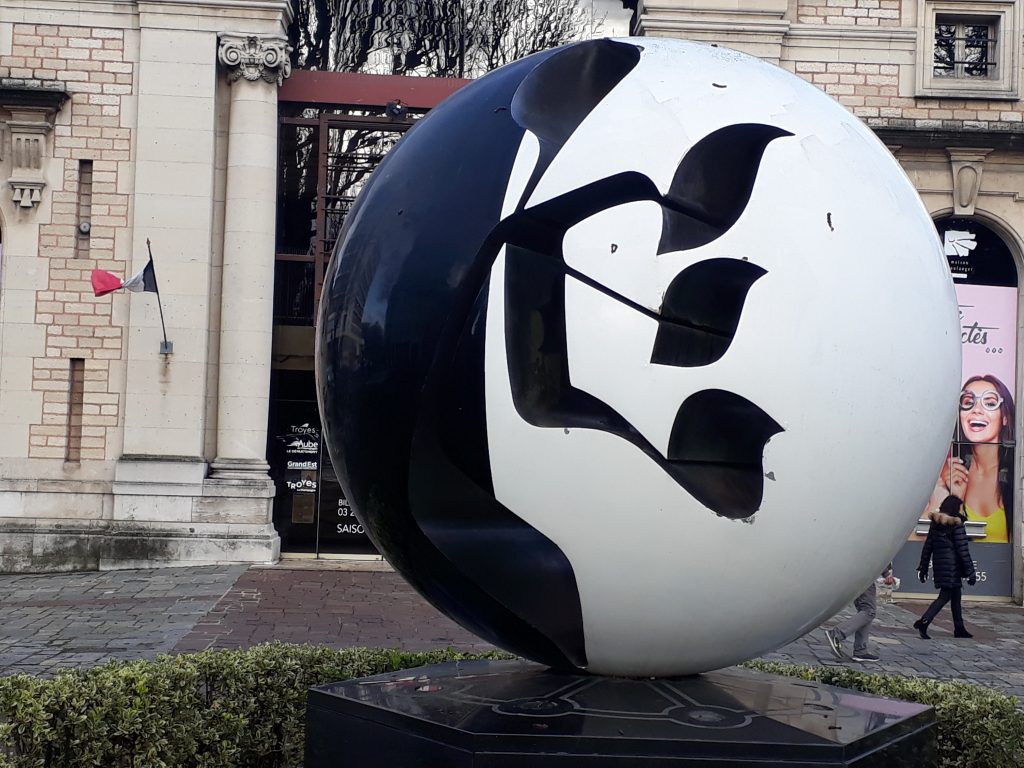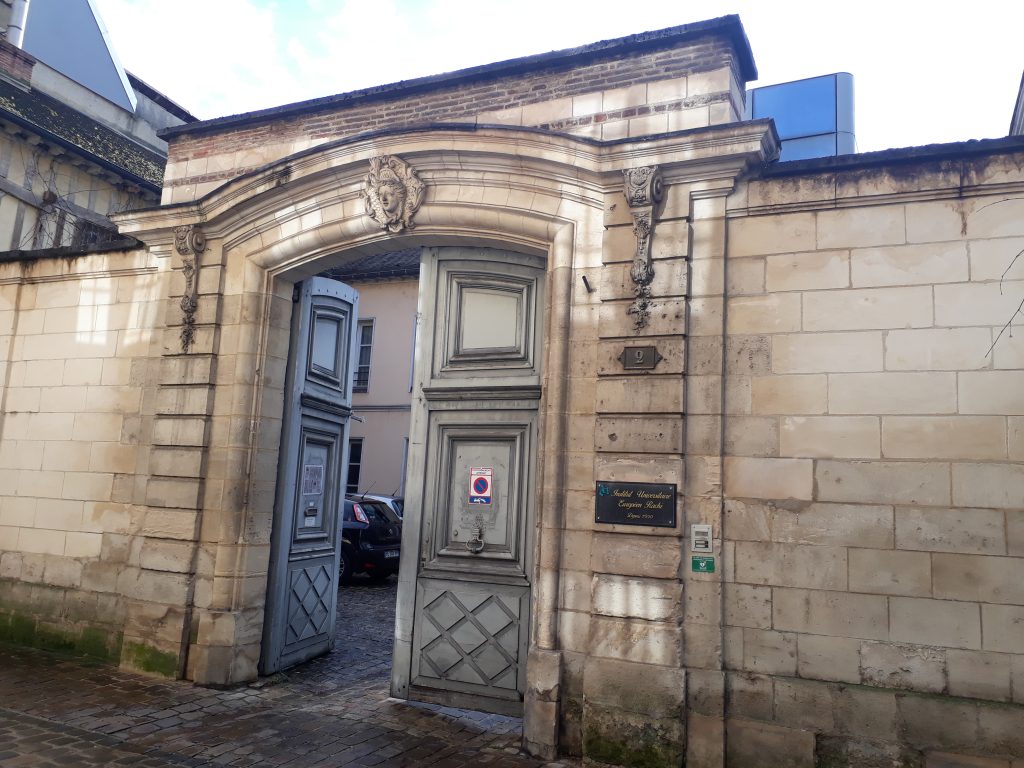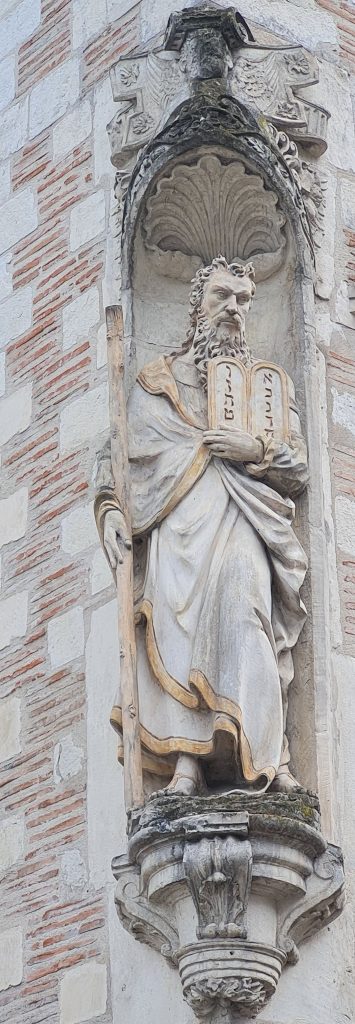The Rashi European University Institute in Troyes, named in honour of the greatest exegete of the Bible who lived in this city, is dedicated to Jewish and Semitic studies and research into the monotheisms. From the start of the 2024-5 academic year, the Institute will be offering a wide range of academic and cultural events. We’ve met the Institute’s management team.

Jguideeurope: How would you define the Rashi European University Institute in Troyes?
The Institute has a secular academic vocation of higher education organised around the Humanities. Biblical and Jewish Humanities, and European Humanities, in their interactions. In line with the central concept of teaching in the Humanities, these major disciplines form the architecture of the Institute’s activities: Philosophy, including hermeneutics and psychoanalysis; History and Law; Languages; Literature and Poetry; and the Arts. These take the form of courses, seminars, conferences, meetings with authors, artistic evenings and exhibitions. As far as cultural events are concerned, we have a number of dates throughout the year, in line with the public calendar.

So what cultural events are planned at the Rachi University Institute for 2024-25?
As is only right and proper, we have a solemn opening conference. This year, on 26 September 2024, it will focus on “Resistance/Terrorism, the weight of words, the shock of ignorance”, a conference with two voices, that of philosophy and that of artistic cinematographic creation with Gérard Rabinovitch and Samuel Blumenfeld.
It will be preceded by a double day of participation in the European Heritage Days on 21 September, with lectures and public readings by Steve Krief and Michel Degardin.
Nor do we miss the National Day of Commemoration of the ‘liberation of the camps’ on 27 January 2025. This year with the Yahda-in unum Association, and its director Michal Chojac. Or International Women’s Day in March, with Isabelle Cohen giving a talk on the theme ‘What is a woman, according to Biblical Wisdom?
Every year, we join the poetry days in May, with a tribute to the Jewish poet of the Russian avant-garde, Lev Rubinstein, who died this year, with Hélène Henry-Safier and Laurent Natrella. And last but not least, the ‘Fête de la Musique’ on 21 June, with a musical lecture entitled “When Edith Piaf sang Klezmer”, with Didier Francfort and Nathan Kuperminc.
How about an overview of the courses offered this academic year?
Semester and annual courses. There will be history courses such as ‘The Jews and the State’ and ‘The History of Religions and the History of Humanity’, as well as lectures. Pascal Ory will give a lecture on ‘Dear old country’. Languages: Hebrew and Arabic; and Latin, Greek and Yiddish in preparation. Philosophy: ‘Reading the Bible with Rachi’, ‘The question of Evil: from Judaism to German philosophy’, ‘Spinoza and Rachi in mirror image’. Art history: ‘The Second World War on screen: silence of the past, fears of the future’, ‘Representations of biblical figures in the three monotheisms’.
There are also seminars, one on ‘Psychoanalytical approaches’, this year on Freudian anthropological contributions; the other on ‘Cross-readings, philosophy, hermeneutics, psychoanalysis’, this year with cross-readings of ‘Difficile liberté’ by Emmanuel Levinas.
Lastly, the IUR teaches the ‘Law, Secularism and Monotheistic Cultures’ University Diploma in partnership with the URCA’s Law and Political Science Department. This is one of the ways in which these activities are linked with public secondary schools, universities and cultural establishments in Troyes and the surrounding area, wherever possible.

The city of Troyes and the department of Aube have a long history of Jewish settlement dating back to the Middle Ages. The personality of Rashi is its most internationally renowned emblem. What traces of this are still there today, and which places linked to Trajan’s Jewish cultural heritage deserve to be better known?
The most obvious is the most intangible, the so-called Genius loci. No longer one of the protective divinities of the polytheistic pantheon of Roman antiquity, but the ‘Spirit of Place’. The distinctive ‘soul’ of the place. It’s an atmosphere that’s very much alive and well, as evidenced by the strong and loyal following of the Institute’s activities among the local public. The unwavering support of the local authorities is the most unmistakable sign of this. It has rediscovered the protective spirit of the Counts of Champagne, overcoming the persecution and erasure of the Jewish presence at the time of Philip the Fair and the centuries that followed.
Then, apart from the Rashi University Institute, there’s the museum trail at the ‘Rashi House’ across the road from the synagogue. There’s the library riches of the Troyes media library and its jewels of old books, so rare, so unthinkable until you see them. Then there’s the monument to Rachi in front of the Théâtre de Champagne, by sculptor Raymond Moretti.
And then there’s the ‘Rashi’ trail, which explores Jewish life in Champagne at the time of Rachi: Dampierre, Lhuitre, Ramerupt, and those places in old Troyes where the layout of the dwellings bears the ‘ghostly’ imprint of medieval Jewish life.
Finally, if you look up, you may come across some surprises like no other, such as this Moses with his tablets engraved in Hebrew characters, carved into the corner of the facade of an old house. It could serve as an emblem for the spirit of the town, of Jewish and Christian brotherhood within an ethical monotheism.